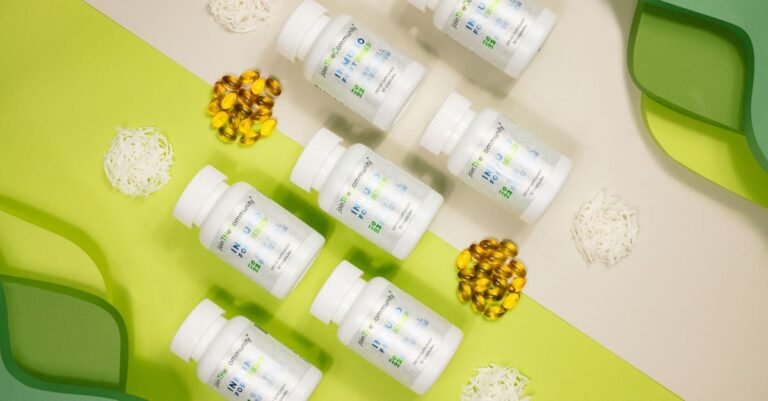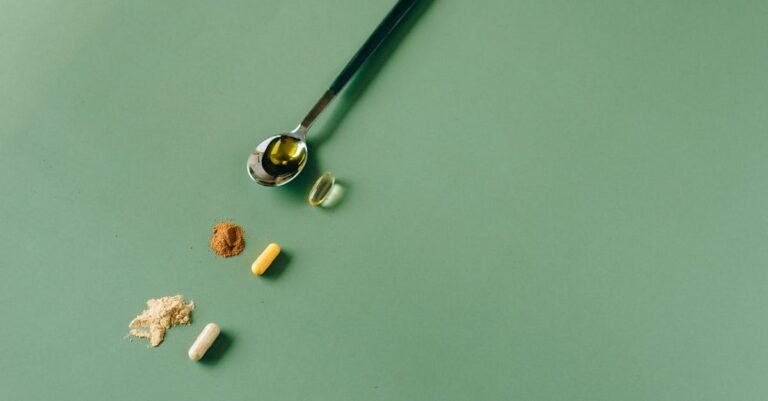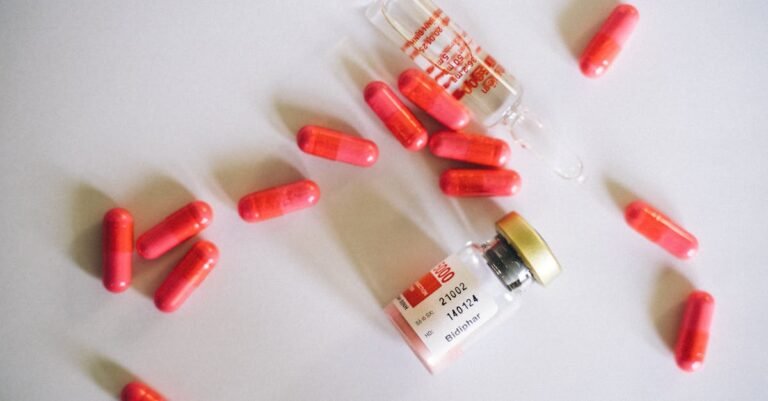Table of Contents
- Best Bilberry Supplements for Eye Health: Seeing Clearly with Nature’s Help
- What Exactly is Bilberry, Anyway?
- Why Bilberry for Eye Health? The Science Bit
- Choosing the Best Bilberry Supplement: What to Look For
- Top Bilberry Supplement Considerations: Focus on Quality
- How to Take Bilberry Supplements for Optimal Results
- Are There Any Side Effects or Precautions?
- Beyond Supplements: Other Ways to Support Eye Health
- Conclusion: Seeing the Bigger Picture with Bilberry
- Frequently Asked Questions (FAQs)
- FAQ 1: Can I just eat bilberries instead of taking a supplement?
- FAQ 2: How long does it take for bilberry supplements to work?
- FAQ 3: Can bilberry supplements cure eye diseases like glaucoma or cataracts?
- FAQ 4: Are bilberry supplements safe for everyone?
- FAQ 5: What’s the difference between bilberry and blueberry supplements for eyes?
Best Bilberry Supplements for Eye Health: Seeing Clearly with Nature’s Help
Let’s talk eyes. Our windows to the world! We rely on them constantly, from navigating our morning commute to binge watching our favorite shows. But with all the screen time, environmental factors, and just the natural process of aging, our peepers can sometimes use a little extra support. Ever heard whispers about a tiny European berry packing a powerful punch for vision? Yep, we’re talking about bilberry. You might be wondering, “Are bilberry supplements the real deal for eye health?” Well, buckle up, because we’re about to dive deep into the world of bilberry and explore how it might just help you see things a little more clearly.
What Exactly is Bilberry, Anyway?
Before we get into the nitty gritty of supplements, let’s properly introduce our star player: the bilberry. Its scientific name is Vaccinium myrtillus, and it’s a close relative of the North American blueberry. Think of it as the blueberry’s smaller, darker, and slightly more intense European cousin.
A Little Berry with a Big History
Bilberries aren’t some newfangled health trend. They’ve been used for centuries in traditional European medicine, not just for jams and pies (though they’re delicious in those too!), but also for various ailments. The most famous story, though perhaps more legend than proven fact, involves British Royal Air Force (RAF) pilots during World War II. Rumor has it they munched on bilberry jam before night missions to improve their night vision. While the historical accuracy is debated, this tale certainly catapulted bilberry into the spotlight for its potential eye benefits, sparking scientific interest that continues today.
Not Just Any Blueberry: The Bilberry Difference
So, what sets bilberry apart from its common blueberry cousin? While both are packed with beneficial compounds, bilberries generally boast a significantly higher concentration of potent antioxidants called anthocyanins. These are the pigments that give bilberries their deep blue/purple color – and importantly, they’re believed to be the key players behind bilberry’s health perks, especially for the eyes. Unlike blueberries where the color and anthocyanins are mainly in the skin, bilberry flesh is also richly colored and packed with these goodies.
Why Bilberry for Eye Health? The Science Bit
Okay, history and legends are nice, but what does modern science say? Why is everyone buzzing about bilberry for vision? It largely comes down to those powerhouse compounds we just mentioned.
The Powerhouse Compounds: Anthocyanins Explained
Anthocyanins are a type of flavonoid, a class of plant compounds known for their antioxidant properties. Think of them as the plant’s natural defense system, protecting it from environmental stressors like UV radiation. When we consume bilberries (or their extracts), we get to borrow some of that protective power. In bilberries, the specific anthocyanins (like cyanidin, delphinidin, and malvidin) are particularly potent.
Antioxidant Action: Fighting Free Radicals
Our eyes are constantly exposed to light and oxygen, making them vulnerable to oxidative stress. This stress is caused by unstable molecules called free radicals, which can damage cells over time – kind of like rust on metal. This damage is implicated in various age related eye conditions. Anthocyanins act like tiny cellular bodyguards, neutralizing these free radicals before they can cause harm. They help protect the delicate structures within the eye, like the retina and lens, from oxidative damage. Pretty neat, right?
Vascular Support: Keeping Blood Flowing
Healthy vision relies heavily on a good blood supply to the tiny capillaries in the eyes. These vessels deliver oxygen and nutrients essential for eye function. Research suggests that bilberry anthocyanins can help strengthen capillary walls and improve microcirculation. Think of it like ensuring the plumbing in your house is strong and clear, allowing water (or in this case, blood) to flow freely where it’s needed. Better blood flow means better nourishment and waste removal for eye tissues.
Potential Eye Benefits: What Research Suggests
So, with these mechanisms in mind, what specific eye benefits are linked to bilberry? While more large scale human studies are always welcome, existing research points towards several promising areas:
Supporting Night Vision
Remember those RAF pilots? While the jam story might be embellished, there is some scientific basis for bilberry potentially helping with night vision. Anthocyanins are thought to support the regeneration of rhodopsin, a pigment in the retina crucial for adapting to low light conditions. Some studies have shown improvements in night vision and faster adjustment to darkness after bilberry supplementation, although results are mixed, and more robust research is needed.
Reducing Eye Fatigue and Strain
Staring at screens all day? Join the club! Digital eye strain, characterized by tired, dry, or achy eyes, is incredibly common. Some studies suggest that bilberry extract might help alleviate symptoms of eye fatigue, possibly due to its antioxidant effects and support for microcirculation, helping eyes recover from the demands of prolonged focus. Participants in some trials reported less discomfort and improved focus after taking bilberry.
Potential Role in Age-Related Eye Conditions
This is where the antioxidant and vascular support really comes into play. Oxidative stress and poor circulation are contributing factors to conditions like age related macular degeneration (AMD) and diabetic retinopathy. While bilberry is not a cure, preliminary research suggests its protective compounds might play a supportive role in maintaining retinal health and potentially slowing the progression of certain issues. It’s often studied alongside other eye nutrients like lutein and zeaxanthin for these conditions.
Choosing the Best Bilberry Supplement: What to Look For
Okay, you’re intrigued. You’re thinking maybe a bilberry supplement is worth a shot. But walk into any health store or browse online, and you’ll see tons of options. How do you pick a good one? It’s not just about grabbing the first bottle you see. Here’s what to consider:
Standardization is Key: Anthocyanin Content Matters
This is probably the most important factor. Remember how we said anthocyanins are the active compounds? Well, you want to know how much you’re actually getting! Look for supplements standardized to a specific percentage of anthocyanins, typically 25%. This standardization ensures consistency and potency from batch to batch. If a label just says “Bilberry Extract 500mg” without mentioning the anthocyanin content, you don’t really know what you’re paying for. Think of it like buying coffee – you want to know if it’s strong or weak, right? Standardization tells you the strength.
Dosage: How Much is Enough?
Dosages in studies vary, but commonly range from 80mg to 480mg of standardized bilberry extract (providing 20mg to 120mg of anthocyanins) per day, often split into multiple doses. There isn’t one single “perfect” dose, and it might depend on your specific reason for taking it. It’s always best practice to follow the manufacturer’s instructions on the label or, even better, consult with your healthcare provider to determine an appropriate dosage for your individual needs.
Purity and Quality: Third Party Testing
The supplement industry isn’t as tightly regulated as pharmaceuticals. That means quality can vary wildly. Look for brands that voluntarily undergo third party testing by independent labs (like NSF International, USP, or ConsumerLab.com). This certification provides assurance that the product contains what the label says it contains, is free from harmful contaminants (like heavy metals or pesticides), and is manufactured using good practices (GMP certified). It’s an extra layer of trust.
Other Ingredients: Synergistic Blends?
Some bilberry supplements come as standalone extracts, while others are part of a broader eye health formula. You might find bilberry combined with other beneficial nutrients like:
- Lutein and Zeaxanthin: Carotenoids concentrated in the macula, filtering blue light and acting as antioxidants.
- Vitamin A (or Beta Carotene): Essential for rhodopsin production and overall vision.
- Vitamin C and E: Potent antioxidants that work well with anthocyanins.
- Zinc: An important mineral for retinal health.
Whether you want a standalone bilberry product or a comprehensive formula depends on your individual needs and existing supplement regimen. Sometimes these combinations offer synergistic benefits, meaning they work better together than alone.
Top Bilberry Supplement Considerations: Focus on Quality
Instead of naming specific brands (which can change rapidly), let’s focus on the qualities that define a top tier bilberry supplement based on our selection criteria. When you’re shopping, keep these benchmarks in mind:
Focus 1: High Standardized Anthocyanin Content
Prioritize supplements clearly stating they are standardized to 25% anthocyanins (or sometimes anthocyanosides). Calculate the actual amount of anthocyanins per serving (e.g., a 160mg capsule standardized to 25% provides 40mg of anthocyanins). Aim for products providing a daily dose within the researched range (typically 40mg 120mg of anthocyanins per day).
Focus 2: Synergistic Blends (e.g., with Lutein & Zeaxanthin)
If you’re looking for comprehensive eye support, consider formulas combining standardized bilberry extract with clinically relevant doses of lutein (often 10mg) and zeaxanthin (often 2mg). These carotenoids target macular health specifically, complementing bilberry’s broader antioxidant and circulatory benefits. Check the amounts of these added ingredients too!
Focus 3: Organic & Clean Formulas
Look for supplements that minimize unnecessary fillers, binders, artificial colors, or allergens. Bonus points for brands using organic bilberry sources, though this can be harder to find and verify. Check the “Other Ingredients” list – ideally, it should be short and contain recognizable components (like the capsule material, maybe rice flour).
How to Take Bilberry Supplements for Optimal Results
So you’ve chosen your supplement. How do you make the most of it?
Consistency is Crucial
Like most natural supplements, bilberry isn’t a magic bullet that works overnight. Benefits, particularly subtle ones like reduced eye fatigue or improved night vision adaptation, are more likely to be noticed with consistent, long term use. Make it part of your daily routine, just like brushing your teeth.
Taking with Food?
Many sources recommend taking bilberry supplements with meals. This may potentially enhance absorption and can also minimize the chance of any mild digestive upset, although bilberry is generally well tolerated. Check the product label for specific instructions, but taking it with food is usually a safe bet.
Are There Any Side Effects or Precautions?
Bilberry extract is generally considered safe for most people when taken in recommended doses. Side effects are rare and usually mild, potentially including digestive upset or headache. However, there are a few important precautions:
- Blood Thinning Effects: Bilberry might have mild blood thinning properties due to its effect on platelets. If you are taking anticoagulant medications (like warfarin) or antiplatelet drugs (like aspirin or clopidogrel), or if you have a bleeding disorder, definitely talk to your doctor before starting bilberry supplements.
- Blood Sugar Effects: There’s some evidence bilberry might lower blood sugar levels. If you have diabetes or hypoglycemia, or if you take medications to control blood sugar, monitor your levels closely and consult your healthcare provider.
- Pregnancy and Breastfeeding: There isn’t enough reliable information about the safety of taking bilberry supplements during pregnancy or breastfeeding. It’s best to err on the side of caution and avoid use unless specifically advised by a doctor.
- Surgery: Due to potential effects on blood clotting and blood sugar, it’s generally recommended to stop taking bilberry supplements at least two weeks before scheduled surgery.
The bottom line? Always, always talk to your doctor or a qualified healthcare professional before adding any new supplement to your routine, especially if you have underlying health conditions or are taking other medications. They can help you determine if it’s appropriate and safe for you.
Beyond Supplements: Other Ways to Support Eye Health
While bilberry supplements can be a helpful addition, they’re just one piece of the eye health puzzle. Don’t forget the fundamentals!
- Eat a Rainbow: A diet rich in fruits and vegetables provides a wide array of vitamins, minerals, and antioxidants crucial for eye health. Think leafy greens (lutein/zeaxanthin), colorful peppers (Vitamin C), carrots (beta carotene), fatty fish (omega 3s), nuts, and seeds (Vitamin E).
- Protect Your Peepers: Wear sunglasses that block 100% of UVA and UVB rays whenever you’re outdoors. If you work with hazardous materials, always use appropriate safety eyewear.
- Manage Screen Time: Follow the 20 20 20 rule: Every 20 minutes, look at something 20 feet away for at least 20 seconds. Ensure proper lighting and screen positioning to reduce strain.
- Don’t Smoke: Smoking dramatically increases the risk of developing serious eye conditions like cataracts and AMD.
- Regular Eye Exams: See your eye doctor regularly, even if you don’t notice vision problems. Comprehensive exams can detect early signs of eye diseases when they’re most treatable.
- Manage Chronic Conditions: Conditions like diabetes and high blood pressure can significantly impact eye health. Keep them well controlled through medication, diet, and lifestyle changes.
Conclusion: Seeing the Bigger Picture with Bilberry
So, are bilberry supplements the secret weapon for perfect vision? Probably not on their own. But the science behind their key compounds, anthocyanins, is compelling. With their potent antioxidant and vascular supporting properties, bilberry extracts show real promise for supporting overall eye health, potentially helping with issues like eye fatigue, night vision adaptation, and offering protective benefits against oxidative stress. Choosing a high quality supplement standardized for anthocyanin content is crucial. Remember, though, supplements should complement, not replace, a healthy lifestyle and regular eye care. By combining smart supplementation (if appropriate for you and discussed with your doctor) with diet, protective measures, and regular check ups, you’re giving your precious eyes the comprehensive support they deserve to keep seeing the world clearly for years to come.
Frequently Asked Questions (FAQs)
FAQ 1: Can I just eat bilberries instead of taking a supplement?
You certainly can enjoy bilberries if you can find them fresh or frozen! They are nutritious and delicious. However, to get the concentrated dose of anthocyanins typically used in studies (often 40 120mg per day), you’d likely need to eat a very large quantity of berries consistently. Supplements offer a convenient and standardized way to ensure you’re getting a specific, potent amount of the active compounds daily.
FAQ 2: How long does it take for bilberry supplements to work?
This varies greatly depending on the individual and the specific benefit being sought. Some people might notice subtle improvements in eye fatigue or night vision adaptation within a few weeks, while potential long term protective benefits happen at a cellular level and aren’t immediately noticeable. Consistency over several months is generally recommended to gauge effectiveness.
FAQ 3: Can bilberry supplements cure eye diseases like glaucoma or cataracts?
Absolutely not. Bilberry supplements are not a cure for any eye disease, including glaucoma, cataracts, macular degeneration, or diabetic retinopathy. While research suggests they may offer supportive benefits due to their antioxidant and circulatory properties, they should never be used as a replacement for prescribed medical treatments or regular eye care from a qualified ophthalmologist or optometrist. Always follow your doctor’s advice for managing diagnosed eye conditions.
FAQ 4: Are bilberry supplements safe for everyone?
While generally safe for most healthy adults when taken at recommended doses, they aren’t necessarily for everyone. As mentioned earlier, individuals taking blood thinning medications, diabetes medications, those who are pregnant or breastfeeding, or those preparing for surgery should consult their doctor before taking bilberry supplements due to potential interactions or effects. It’s always best to discuss any new supplement with your healthcare provider.
FAQ 5: What’s the difference between bilberry and blueberry supplements for eyes?
Both bilberries and blueberries contain beneficial anthocyanins, but bilberries typically have a higher concentration and slightly different profile of these compounds. Bilberry extract, particularly standardized extract, is more commonly researched and marketed specifically for targeted eye health benefits due to this higher potency. Blueberry supplements are also healthy, offering general antioxidant support, but bilberry supplements are usually the preferred choice when focusing specifically on vision support based on current research trends.










